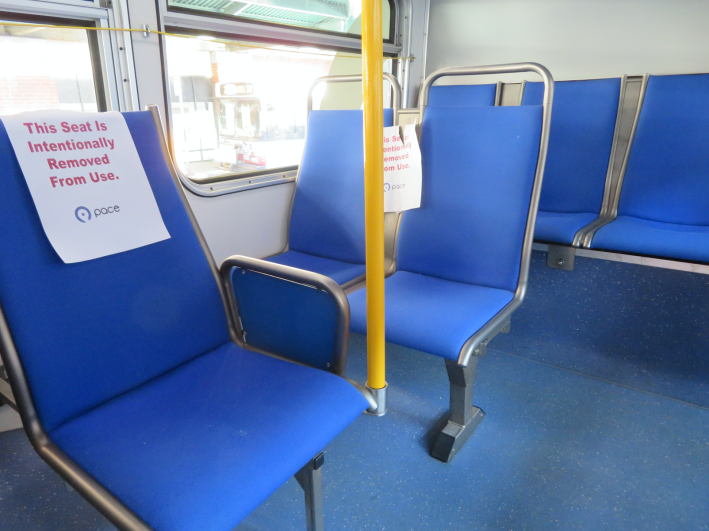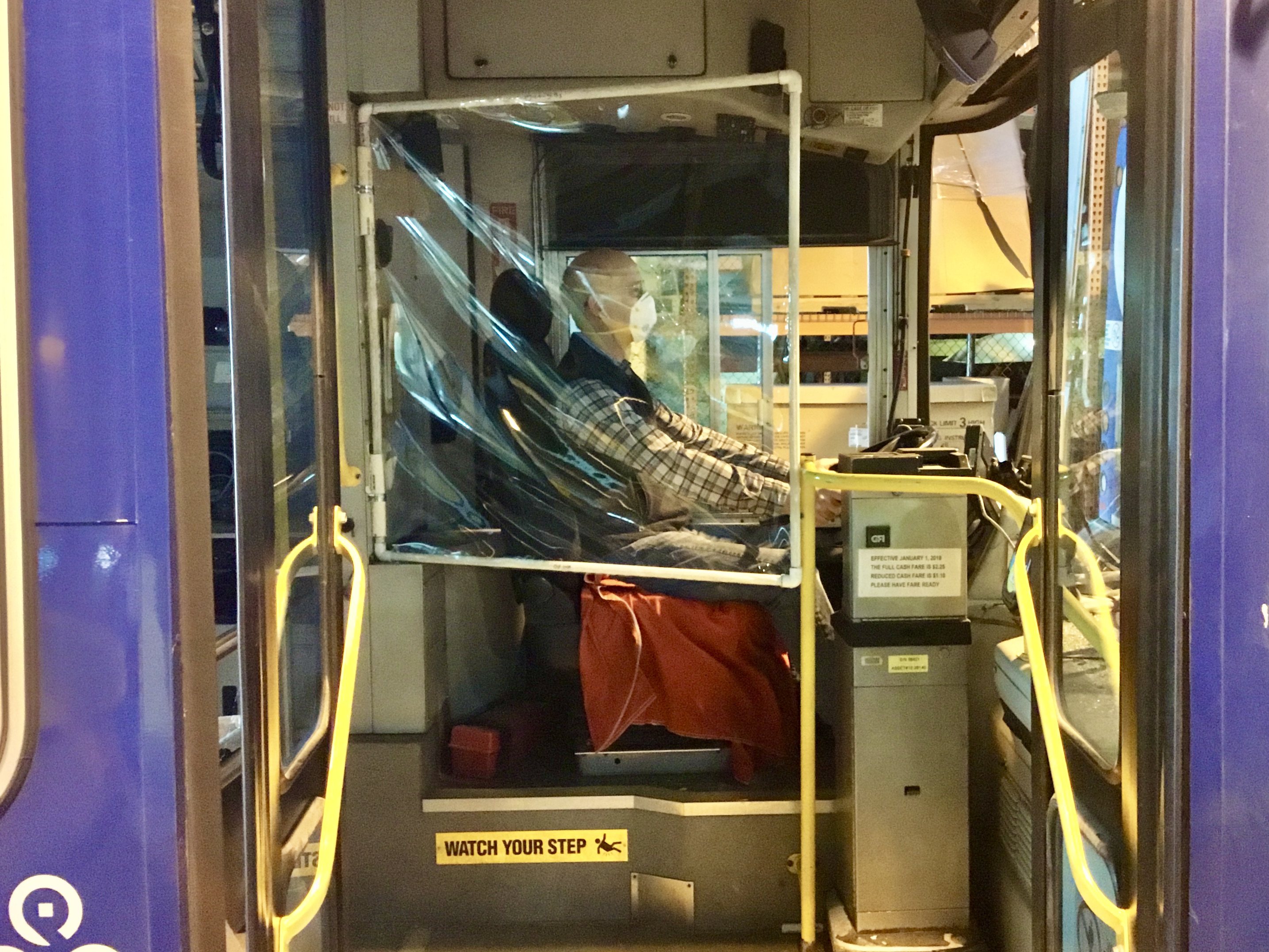Today the CTA announced that it will be requiring rear-door bus boarding for most passengers during the pandemic to reduce viral exposure for drivers and passengers. Unlike other U.S. transit systems that have done this, the CTA will not be waiving bus fares to accommodate rear boarding for the duration of the COVID-19 crisis. While CTA bus rides are currently free, the agency is installing Ventra card readers at the rear doors, and will require fare payment again once the readers are installed on all buses.
Pace Suburban Bus also launched an expedited boarding policy today dubbed “Quick Board, Safe Board,” but it is waiving fares on buses and paratransit shuttles for the rest of Illinois' Stay at Home order. That way customers won't have to wait in line to swipe a Ventra card or pay cash, which will reduce contact between passengers and lower the bus operator's exposure.
While passengers may (but aren't required to) use the rear door on buses that have them, many Pace buses are 30-foot-long vehicles with only one non-emergency door, so they're not planning to install any rear-door card readers. Meanwhile, unlike all CTA buses being used during the pandemic, Pace vehicles lack Plexiglas shields that help keep respiratory droplets away from the operator.
Rather than wait for manufactured shields to arrive, Pace is MacGyver-ing their own. They’ve bought clear vinyl from two vendors and will design, cut and install barriers with PVC-piping for frames. Installation is slated to begin this weekend, and barriers will be added to all 763 fixed-route buses. "We are grateful for the hard work of the exceptional team of employees working day and night to make this happen and for the continued dedication of our operators who report to work every day to ensure that those who rely on Pace have access to the essential services they need," said Pace spokesperson Maggie Daly Skogsbakken.

Pace is also limiting seating near the driver and has blocked every other row of seats with signs where possible to encourage social distancing. On routes with heavier ridership, the agency is working to deploy additional vehicles to prevent crowding.
As pandemic strategies, Pace had already waived bus fares for healthcare workers, as well as getting rid of the $3 rider fee for its Taxi Access Program, which provides subsidized rides for people with disabilities. The agency has also provided thermometers to drivers so they can check their temperatures before starting shifts.





